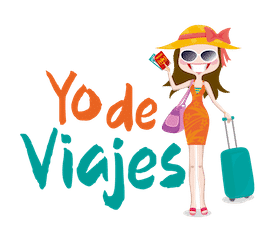The Briyeka is an agro tourism farm in the community of La Negrita near Penonomé in the province of Coclé. You take the road past the Banco General in Penonomé that goes to Chigoré and drive up about 20 minutes.

We were received by Alberto, the owner, who is a retired teacher as well as his wife. They bought the farm 35 years ago and it was only stubble. They tell visitors how they started in a place without light or water, there was only one path. They made a penca ranch and went on weekends to camp with their eldest daughter. Then they made the house and little by little built all the infrastructure that is seen today. “Briyeka” is a combination of the names of their three daughters: Briggitte, Yennifer and Karen.


Reforestation of La Briyeka


They reforested three hectares with timber, such as cedar and teak, as they told him that in 20 years they would earn $ 80,000 for one hectare of teak. But they did not tell him how much it degraded the soil and killed all the fruit trees. He already harvested all the teak but does not plan to plant more. But it still preserves the cedar.



Audubon went to the farm and in three days they were given a certification of the 82 species of birds visible outside of the migratory ones. You can walk a path through the secondary forest that takes 45 minutes. In it you can see monkeys in the evenings and in the mornings, also deer, ñeque, painted rabbit and sloths.



Support to the community
The community of La Negrita has great potential as a cultural tourism destination. Cerro El Vigía was where Victoriano Lorenzo spent most of his time. This indigenous leader had an important participation in the War of a Thousand Days given between 1899 and 1902 which was precursor to the separation of Panama with Colombia. From the top of the hill the sentry spotted the troops of the Conservatives and in the lower part they had the headquarters. When the troops arrived on horseback he went to Capira with the help of the peasants he defended who gave him sugar and salt to survive. He supported the Liberals like Belisario Porras.
He was captured in May 1903 before the separation and was executed. For the same reason today he is considered a national martyr. General Omar Torrijos made a monument with 12 monoliths on his honor on the hill where he was shot.
The community of La Negrita currently makes handicrafts from soapstone that are carved from a mine in Membrillo. At La Briyeka farm they organize typical music bands for visitors. Apart they bring a lady who makes ‘sombrero pintados’ that are the true Panamanian hats.

Spend the day or camp
At the moment they do not have the option of lodging, you can only camp with infrastructure such as bathrooms and common areas. They receive many universities and bachilleres of tourism from schools, beside groups. Days passes are from 8 a.m. at 3:30 p.m. and include lunch. They have an excellent cook who prepares typical food such as rice with chicken, ‘ensalada de toldo’ (potato salad), suckling pig and ‘sancocho’ (chicken soup) with white rice.


They are venturing into gastronomy where people can prepare dishes and taste them according to the items available in different seasons. La Briyeka produces vegetables and fruits for self consumption. In addition to farm animals such as horses, chickens and rams.



Those who visit can learn to harvest rice with motet, milk a cow or grind cane in a sugar mill. They also have a large ‘junta de embarre’ (mud pit) which they use to build rooms that will eventually be for rent.



The Zaratí River that passes through the farm is suitable for bathing. They have water sources with a capacity of three thousand gallons. With a turbine they carry the water for the house. In the swamp they will make a pond with tilapia with the support of the Water Resources Authority of Panama (ARAP) and the Ministry of Agricultural Development (MIDA).


Prices vary depending on how many people go and it is advisable to make reservations before visiting. You can stay in a hotel in Penonomé.



![]()








